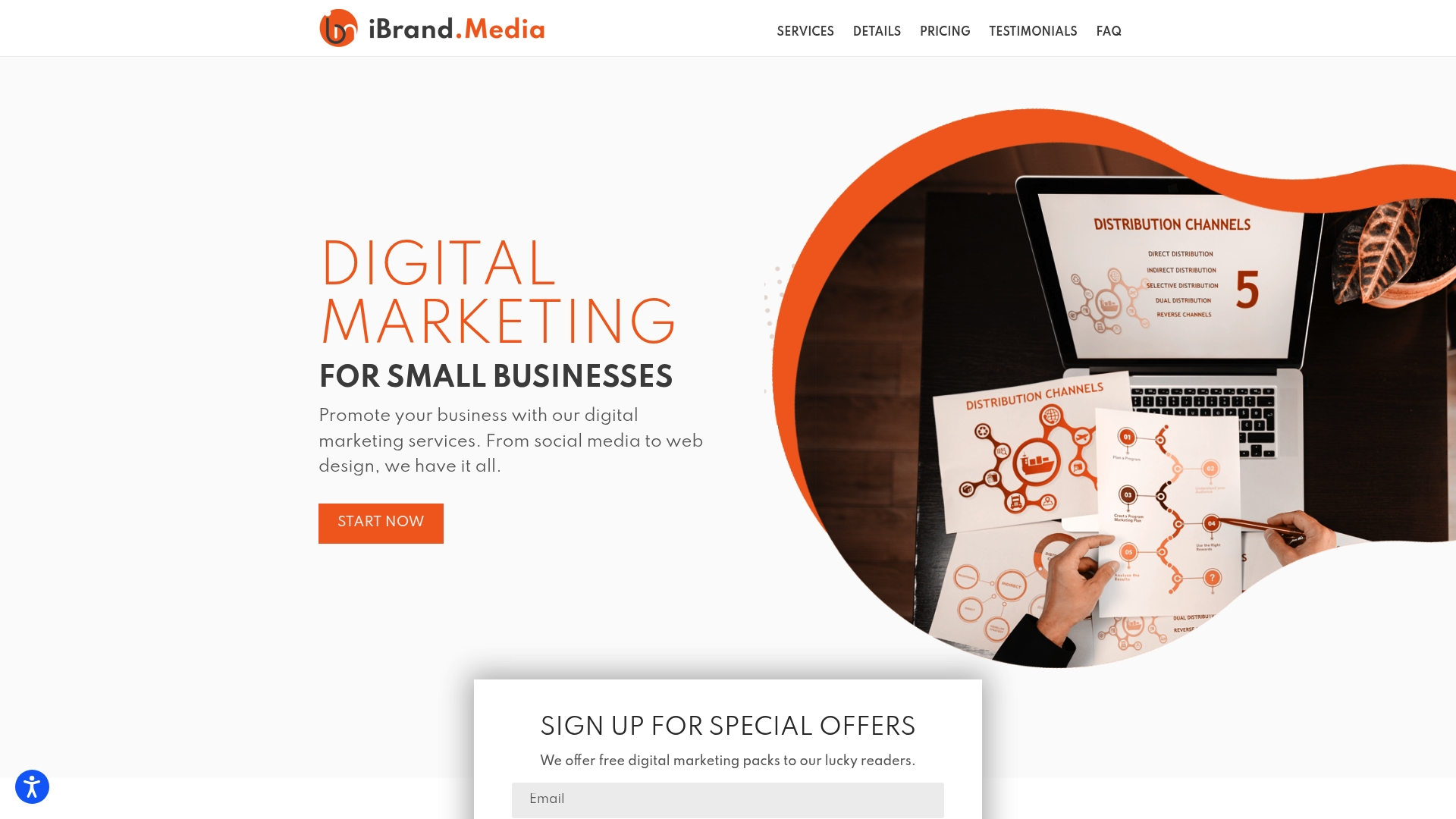Over 80 percent of businesses now use content marketing to reach customers in a crowded digital world. Audiences crave information that feels trustworthy and useful rather than another sales pitch. By understanding the real meaning and core principles of content marketing, you can transform scattered efforts into focused strategies that actually boost engagement and build lasting customer trust.
Table of Contents
- What Is Content Marketing? Core Principles
- Major Types of Content Marketing Explained
- How Content Marketing Drives Business Growth
- Effective Strategies and Real-World Examples
- Common Mistakes and How to Avoid Them
Key Takeaways
| Point | Details |
|---|---|
| Audience-Centric Approach | Focus on understanding audience needs and delivering relevant, high-quality content to establish trust and engagement. |
| Value Over Promotion | Prioritize creating informative and valuable content over direct sales messages to build meaningful connections. |
| Diverse Content Strategies | Utilize various content formats such as blogs, videos, and social media to engage different audience segments effectively. |
| Avoid Common Pitfalls | Develop customer-oriented, data-driven strategies while ensuring consistent quality and authentic messaging to foster audience trust. |
What Is Content Marketing? Core Principles
Content marketing is a strategic approach focused on creating and distributing valuable, relevant, and consistent content to attract and retain a clearly defined audience. According to Equinet Academy, the core philosophy centers on understanding audience needs and delivering high-quality information that builds trust and engagement.
At its essence, content marketing transcends traditional advertising by prioritizing genuine value over direct product promotion. Instead of pushing sales messages, businesses craft informative, educational, and entertaining content that solves problems and addresses specific audience challenges. Understanding Content Marketing for Beginners explains this approach as a powerful way to establish credibility and meaningful connections with potential customers.
The fundamental principles of content marketing revolve around several key strategies:
- Audience-First Mindset: Creating content that directly addresses audience pain points and interests
- Consistency: Maintaining a regular publishing schedule and brand voice
- Value-Driven Approach: Prioritizing quality information over sales pitches
- Relevance: Developing content that speaks directly to specific customer segments
- Trust Building: Establishing authority through transparent, helpful information
Successful content marketing requires a deep understanding of your target audience, their motivations, and the specific challenges they face. By consistently delivering high-quality, relevant content, businesses can transform their marketing from interruption-based tactics to meaningful conversations that genuinely serve their customers’ needs.
Major Types of Content Marketing Explained
Content marketing encompasses diverse strategies that help businesses connect with their audience through various media formats. According to the PESO model, these strategies can be categorized into four primary channels: Paid, Earned, Shared, and Owned media, each offering unique opportunities for brand engagement and communication.
The primary types of content marketing include:
- Blog Content: Informative articles that provide value, answer questions, and establish thought leadership
- Video Marketing: Engaging visual content that explains products, shares stories, or provides tutorials
- Social Media Content: Short-form posts, graphics, and interactive content across platforms
- Podcasting: Audio content that explores industry topics and builds audience connection
- Infographics: Visual representations of complex information and data
- Email Newsletters: Targeted communications delivering personalized content directly to subscribers
- Webinars and Online Workshops: Interactive learning experiences that showcase expertise
Branded content represents a sophisticated approach where entertainment and informative products are created to build brand awareness without direct product promotion. This strategy reflects brand values through storytelling and engaging media that resonates with target audiences. Understanding Why Content Marketing Works highlights that successful content marketing isn’t about selling, but about creating meaningful connections that inspire trust and loyalty.
The key is selecting content types that align with your specific business goals, target audience preferences, and available resources. By diversifying content strategies and focusing on providing genuine value, businesses can create compelling narratives that cut through traditional marketing noise and establish real, lasting relationships with their customers.

How Content Marketing Drives Business Growth
Content marketing is a powerful engine for business growth, transforming how companies attract, engage, and retain customers through strategic, value-driven communication. 8 Content Ideas for Small Business Growth illustrates that effective content marketing goes beyond traditional advertising by creating meaningful connections that directly impact a company’s bottom line.
The primary ways content marketing drives business growth include:
- Improved Search Engine Visibility: High-quality content boosts organic search rankings
- Enhanced Brand Authority: Consistent, valuable content establishes thought leadership
- Cost-Effective Customer Acquisition: Reduces reliance on expensive paid advertising
- Increased Customer Engagement: Builds trust and nurtures long-term customer relationships
- Higher Conversion Rates: Educates potential customers and guides them through the buying journey
- Expanded Audience Reach: Creates shareable content that extends brand visibility
Content marketing works as a strategic investment that compounds over time. Unlike traditional advertising that provides short-term results, well-crafted content continues to generate value long after its initial creation. By addressing customer pain points, answering critical questions, and providing genuine value, businesses can create a sustainable growth mechanism that attracts ideal customers organically.
The most successful content strategies align closely with specific business goals, target audience needs, and available resources. Content Marketing Explained emphasizes that consistent, high-quality content is not just a marketing tactic, but a fundamental approach to building meaningful connections that drive sustainable business growth. Small businesses can leverage content marketing to level the playing field, competing with larger competitors through strategic, value-driven communication that resonates deeply with their target audience.
Effective Strategies and Real-World Examples
Developing successful content marketing strategies requires a nuanced approach that combines creativity, data-driven insights, and deep audience understanding. According to research from ArXiv, advanced neural network systems are now helping marketers extract actionable insights from content designs, demonstrating how technology can enhance traditional marketing approaches.
Key strategies for effective content marketing include:
- Audience Persona Development: Creating detailed profiles of target demographics
- Content Mapping: Aligning content with specific customer journey stages
- Storytelling Techniques: Crafting narratives that resonate emotionally
- Multi-Channel Distribution: Spreading content across diverse platforms
- Performance Analytics: Continuously measuring and adjusting content strategies
- Personalization: Tailoring content to specific audience segments
Real-world examples demonstrate the power of strategic content marketing. A local coffee shop might create a blog series about brewing techniques, sharing expert tips that simultaneously educate customers and showcase their expertise. Similarly, a home services business could develop video tutorials addressing common household maintenance challenges, positioning themselves as trusted advisors rather than mere service providers. Effective Strategies for Improving Small Business Visibility in 2025 highlights how targeted, value-driven content can transform a business’s market positioning.
Successful content marketing isn’t about producing massive quantities of content, but creating strategic, high-quality pieces that genuinely serve audience needs. By focusing on delivering real value, businesses can build trust, establish authority, and create meaningful connections that drive long-term growth. The most effective strategies blend creative storytelling with data-driven insights, ensuring each piece of content serves a specific purpose in the broader marketing ecosystem.
Common Mistakes and How to Avoid Them
According to research from JETIR, many businesses stumble in content marketing by failing to develop customer-oriented, data-driven strategies. Understanding and anticipating these common pitfalls is crucial for creating effective marketing approaches that genuinely connect with your target audience.
The most prevalent content marketing mistakes include:
- Inconsistent Brand Voice: Lacking a unified communication style
- Neglecting Audience Research: Creating content without understanding target demographics
- Overlooking Content Quality: Prioritizing quantity over meaningful insights
- Ignoring Performance Metrics: Failing to track and analyze content effectiveness
- Poor Distribution Strategy: Not leveraging multiple channels strategically
- Lack of Authentic Storytelling: Creating generic, uninspired content
From affiliate marketing disclosure research, transparency emerges as a critical factor in building audience trust. This principle extends beyond simple disclosure, encompassing genuine authenticity in content creation. Small businesses often make the mistake of trying to mimic larger competitors instead of developing their unique voice and addressing specific audience needs.
7 Common Digital Marketing Mistakes to Avoid emphasizes that successful content marketing is about creating genuine connections. The key is to view content not as a sales pitch, but as a valuable resource that solves real problems, answers critical questions, and provides meaningful insights. By focusing on quality, relevance, and audience needs, businesses can transform potential mistakes into opportunities for deeper engagement and long-term customer relationships.

Take Your Content Marketing to the Next Level with Tailored Digital Solutions
Struggling to consistently deliver valuable content that truly connects with your audience? You are not alone. Many businesses face challenges like unclear brand voice, lack of audience insights, and ineffective distribution strategies as discussed in the article. These pain points make it hard to build the trust and engagement needed to drive real growth. By embracing an audience-first mindset and focusing on relevance and quality, you can turn content marketing from a guessing game into a powerful business driver.

Looking for a strategic partner who understands these challenges and can help you create a focused, results-driven content marketing plan? Explore our insights in Uncategorized | Ibrandmedia and join the many small to medium-sized businesses boosting their online presence through expert SEO optimization, social media management, and customized digital campaigns. Visit ibrand.media to start your journey with affordable, mobile-friendly solutions and real-time performance tracking. Act now to transform your content strategy into measurable success through a personalized plan built for your unique business goals.
Frequently Asked Questions
What is content marketing?
Content marketing is a strategic approach focused on creating and distributing valuable, relevant, and consistent content to attract and retain a defined audience, prioritizing genuine value over direct product promotion.
What are the major types of content marketing?
Major types of content marketing include blog content, video marketing, social media content, podcasting, infographics, email newsletters, and webinars. Each type serves to engage audiences and deliver value in different formats.
How does content marketing drive business growth?
Content marketing drives business growth by improving search engine visibility, enhancing brand authority, reducing customer acquisition costs, increasing customer engagement, and leading to higher conversion rates and expanded audience reach.
What are common mistakes in content marketing to avoid?
Common mistakes in content marketing include inconsistent brand voice, neglecting audience research, overlooking content quality, ignoring performance metrics, and failing to tell authentic stories. Avoiding these pitfalls can lead to more effective marketing strategies.

Recent Comments